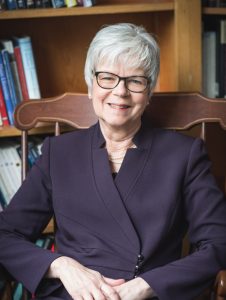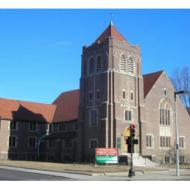Association for Practical Theology
Boston, April 9-11, 2010

The following reflections on practical theology were begun in the last post.
I continue here because of the abundance of good gifts at the meeting worth sharing . . . even if you don’t think of yourself as a practical theologian (and hey why not? it’s a professional identity worth exploring!), I hope you’ll find something to learn from here.
Friday Night
One of the best gifts we can give to people is to ask them “How did God’s presence get you through that tough spot in your life?”
This was the advice of sociologist and self-described “immigrant in practical theology” Dr. Nancy Ammerman. Nancy gave the opening keynote address at the Association for Practical Theology last Friday evening. She is no stranger to those of us who gathered for the meeting. Her work has influenced many who think about denominational conflict, local congregations and/or everyday religion. For me her studies of changes to Baptist life over the last twenty years in Baptist Battles and Southern Baptists Observed have been enormously important. Her current project is called “Spiritual Narratives in Everyday Life.”
That is where her sage advice came from. “Just ask,” she says. It might be “the single best gift we can give to people.” She said this in helping us to think about the bridge between academia and everyday life. The latter is the place where practical theology should begin and end its work. And she reminded us one of the most basic features of our work: “We won’t learn if we don’t ask.” Sounds simple but is not always easy to do.
What has the project team of researchers learned from the stories they’ve recorded?
- God is present for people in a host of everyday parts of their lives: prayer, family, the natural world, and so clearly in their talk of bodies, especially around experiences of illness and death.
- Religion and spirituality are not as far apart as the popular perception would make us think
- Those who are closer to religious institutions are more likely to speak of God in personal language
- Those who are not affiliated with religious institutions use the language of pop culture more in their stories of spiritual connection
- Some of the themes about the way people speak of their spiritual experiences include the following: mystery, majesty, meaning, morality and connection.
Sunday Morning

The final gathering for the APT meeting was at the International Community Church (ICC) in Boston. We had good opening discussion about Sabbath practices. The faculty and students at Boston University’s School of Theology are trying to figure out how to resist the culture of busyness and productivity in the same way the rest of us are. They have opened up several partnerships in this with local congregations, including ICC.
They are trying to connect with the Jewish and Christian traditions that support a rest that invites recognition that we are not in charge of the world. God is present even while we rest. This is hard for us to believe. It is especially hard to believe in schools where the culture insists on production of knowledge in the form of tests, papers, books and classes.
I’ve been trying to learn the practice of Sabbath for a while now, most seriously for the last five years. Sabbath is much more than self-care. It is a kind of fundamental trust in something beyond of ourselves. It is a kind of practice which is necessary for genuine healing. And it is unavoidable if community is to be sustainable.
In fact if you were to ask me, “How did God’s presence get you through that tough spot in your life?” One of my answers would be that the practices of resting and trusting in a presence beyond myself and sustaining communal connections with stories have helped me through a lot of tough spots.
What helps you?



